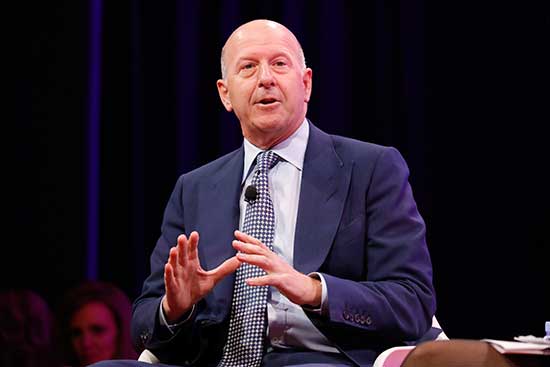多筆投資失敗,高盛開始重視利潤

|
要問最新一位加入“利潤至上”小團體的企業(yè)家是誰,?是高盛的首席執(zhí)行官蘇德?。―avid Soloman)。多年以來,,高盛集團輕利潤,,不計一切代價換取業(yè)務增長,然而現(xiàn)在蘇德巍幡然醒悟,,原來應該利潤至上,。 在經(jīng)歷了投資Uber和WeWork失敗后,蘇德巍接受彭博社記者采訪表示:“人的成長當然很重要,,但對盈利渠道的認識也越來越透徹,。”蘇德巍認為,,市場規(guī)范發(fā)揮的作用也比以前多,。 高盛對Uber、Avantor和Tradeweb Markets等公司的股權投資損失2.67億美元,。在WeWork的IPO計劃失敗后,,高盛已經(jīng)對持有的WeWork股權損失了8000萬美元,。上季度也成為高盛三年多來業(yè)績最慘淡的一個季度。 蘇德巍指出:“橫掃全球的貨幣政策實際上是在逼迫人們?nèi)ッ半U,,強迫大家尋找其他方式獲得收益,,其中備受追崇的方式之一便是追求增長,某種程度上來說是不計代價求增長,。當下的市場狀況在警示人們,,該收手了?!?/p> 蘇德巍將WeWork當成資本市場是否正常運轉的風向標,。在WeWork嘗試IPO失敗之前,我早就寫過該觀點,。在4月的一篇專欄中,,我提到只要有長期增長的潛力,投資者對短期沒有利潤還是愿意寬容,。針對我的觀點,,《Term Sheet》專欄的一位讀者發(fā)來了回應: “公司一旦開始追求利潤,必定會出現(xiàn)拐點,,他們通常揮動定價大棒,,信奉成王敗寇,即便沒有這么夸張至少也會接近,。因為如果你不這樣做,,就無法發(fā)展業(yè)務,道理就是這么簡單,?!?/em> 我們也開始追求利潤了。上個月,,Trinity Venture 的帕特里西婭·納卡什就指出私募資本市場已經(jīng)掉轉方向,,不計代價追求增長。現(xiàn)在,,公開市場參與進來并直接指出增長的代價已經(jīng)太大,。她在《財富》最具影響力的商界女性峰會上表示:“私有資本市場從一個極端走向另一個極端,本身就是錯誤,?!保ㄘ敻恢形木W(wǎng)) 譯者:艾倫 審校:夏林 ? |
The latest financier to get on the “pivoting to profit” bandwagon? Goldman Sachs’s CEO David Solomon. After years and years of companies pursuing revenue growth at all costs and putting profit on the backburner, Solomon is the latest to have the epiphany that profit matters. Stung by Uber and WeWork, Solomon told Bloomberg that “it’s important for people to grow, but there’s got to be a clear and articulated path to profitability.” He added that he thinks there’s a little more market discipline coming into play. Goldman Sachs lost $267 million on public equity investments such as Uber, Avantor, and Tradeweb Markets. Its stake in WeWork fell by $80 million after the company’s failed IPO plan. Last quarter was Goldman’s worst performance in more than three years. Solomon said: “The monetary policy that has been ramping around the world has basically forced people out on the risk curve, has forced people to look for other ways to drive returns, and one of the things they’ve been chasing is growth and to some degree growth at all costs. The market here is speaking and telling people here, let’s rein that in a little bit.” Solomon used WeWork as a signifier that capital markets were functioning properly. I’ve been writing about this way before the WeWork implosion. In an April column, I pointed out that investors are willing to overlook profitability so long as there’s a promise for long-term growth. In response, one Term Sheet reader wrote: “There has to be an inflection point when a company swings to profitability, typically by wielding pricing power in a winner-take-all market, or at least continues inching closer to it. If you don’t have that, you don’t have a business. Plain and simple.” Oh, and we’ve swung. Trinity Ventures’ Patricia Nakache said last month that the private markets have swung way out toward growth at all costs. Now, public markets have weighed in and resoundingly said that this has gone too far. “It’s a mistake in private markets to go from extreme to extreme,” she said at Fortune’s Most Powerful Women Summit. |













